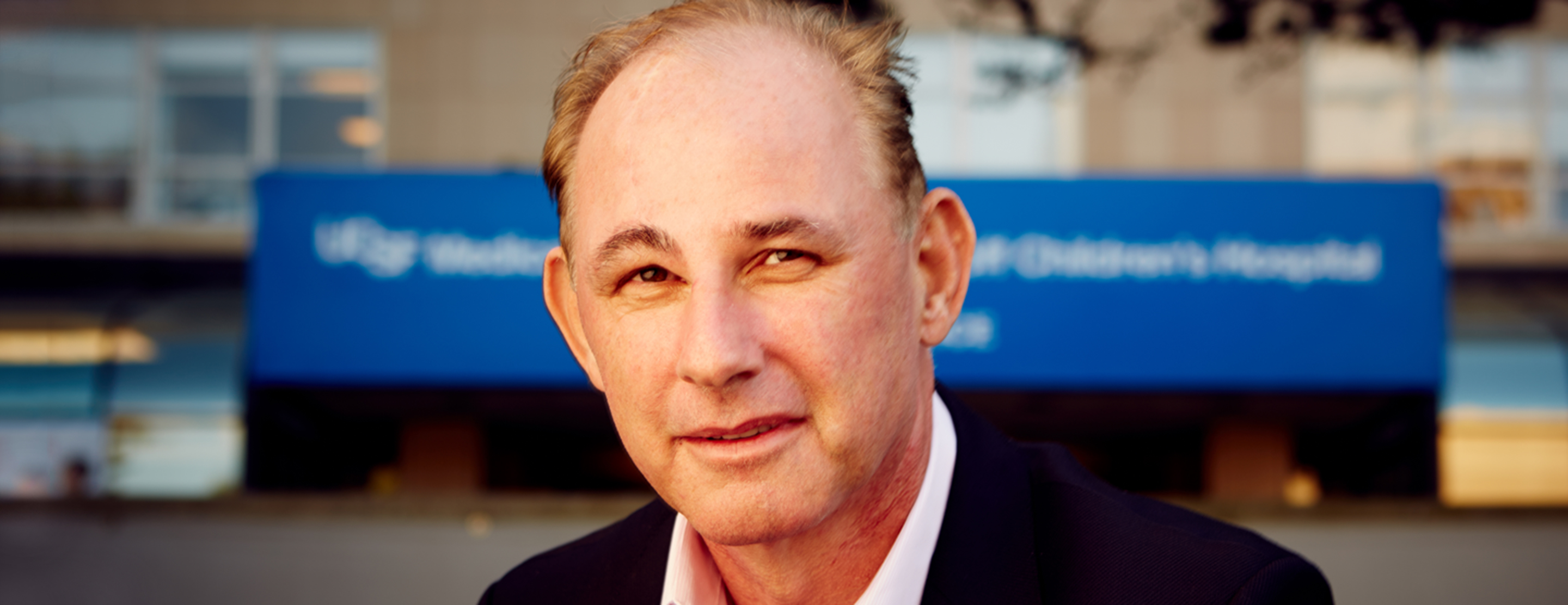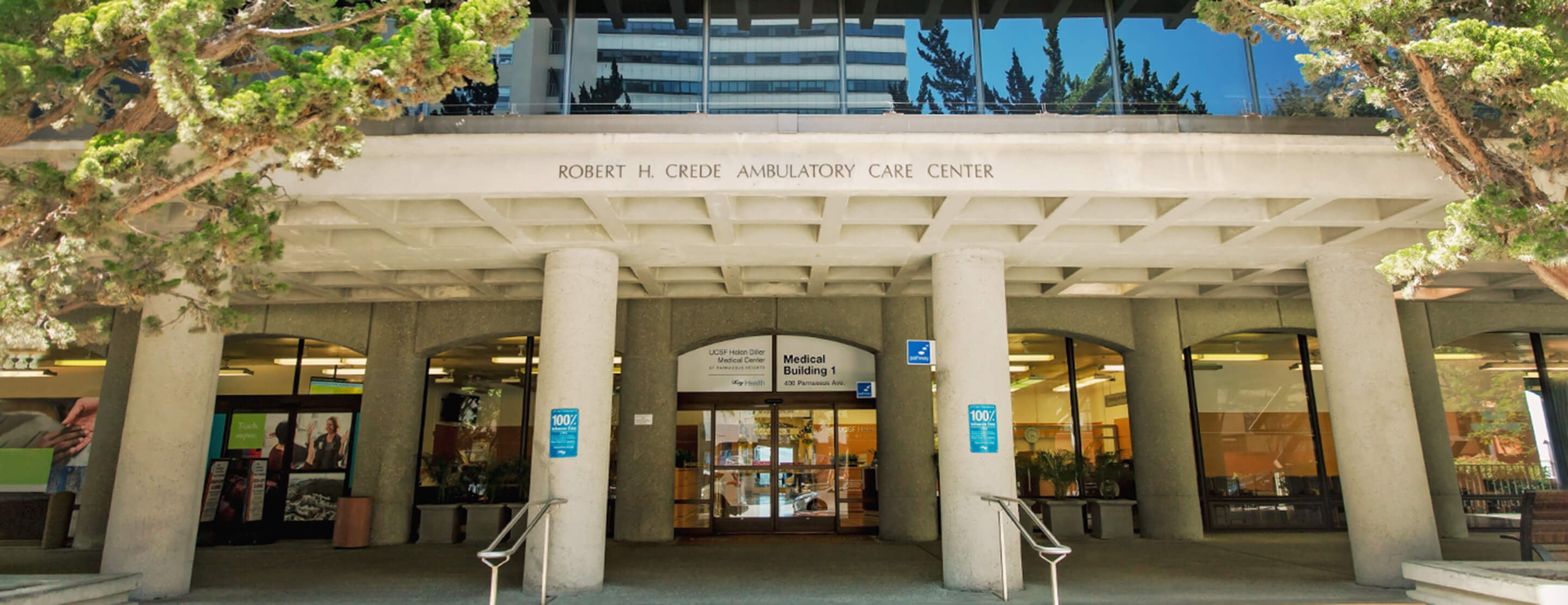After Michael Schofield had his first pancreatic islet cell transplant as treatment for diabetes in April 2012, he wrote a letter thanking the family of his donor. It was over a year before he heard back from the donor's mother. That's when he learned they had more in common than the young man whose cells Schofield was carrying.

Islet Cell Transplant Recipient Meets Donor's Family
In June 2013, he was en route from his home in Arizona to meet the donor's mother, when he got another exciting piece of news: UCSF had a donor for his second islet transplant. In the space of a week he connected with one donor's family and started a new connection with another.
How did you hear from the donor's family?
I was sitting in Starbucks one morning checking my email. There was an email from someone – I didn't know who it was – telling me all about her son. Eventually I realized it was my donor's mother. At the end of the email, she wrote, "It's a small world, isn't it?" It turned out she works for AT&T, just like me. Her name is Liz. She's been with the company for 32 years and is a supervisor at the contact center in Palo Alto. We started texting back and forth on AT&T's internal system, talking about her son Michael.
Did you want to meet each other?
We set up a time to meet during my next visit to San Francisco. I go there regularly to pick up my immunosuppressant drugs. I was on my way there from Arizona, changing planes at John Wayne Airport in Orange County, when I got a message that a donor was ready at UCSF and I should come immediately for the second islet transplant. Here I was on my way to meet my first donor's mother. I thought to myself, maybe someone's looking down on me and thinking, "That's a great thing to do. Here's another gift for you: another donor." That's what went through my mind.
Did you still get to meet?
I got the message from UCSF on a Friday. The next day I met Liz and her other son for lunch at a restaurant at Pier 39. She called to say she was wearing a Donald Duck T-shirt and she would wave so I could find her. We met up and gave each other a big hug.
We talked and shared photographs and took pictures for the AT&T website. I brought her a framed photo of my family and myself. She told me the date of the accident that killed her son, and I realized it happened on my birthday, though I didn't tell her that. Then she said he had a 6-year-old daughter. I said, "When is her birthday? I'd like to send a gift." July 6, she said. That's my wedding anniversary. I didn't say anything, but wow! Then, after we said goodbye and I was walking away, my sunglasses hanging at the back of my neck as usual, she said, "Hey Mike, how long have you been wearing your sunglasses like that? A long time?" I said, "No, just in the last few months." She said, "My son wore his sunglasses like that for the past 10 years."
Was it emotional meeting her?
Oh my God, yes. It was a happy moment, but also a sad moment. I have three teenagers of my own and I just couldn't imagine her pain. We still text back and forth quite often. Because the thing is, you have good days and bad days. On bad days, she needs a little lift.
Meet Michael's care team
Did she give you a picture of Michael?
Yes. I keep his picture on my bathroom mirror, along with a cross his mother made me. Sometimes I talk to the picture, like, "It's going to be a tough day today," or whatever. All in all, the guy's a part of me now.
Did you share with her that you were having another transplant?
Yes, and the day of the [next] surgery she sent me a text: "Hey, I know you've got the procedure today. Don't worry. My son is within you, he will protect you, SO SMILE."
Were you expecting to have a second transplant?
I always knew there was a possibility I would have to have two. The first one gave me 750,000 islet cells, and you need over a million cells. And the immunosuppressant drugs you take after transplant don't allow those donor cells to reproduce. The heavier you are, the more cells you need. I weigh 192 pounds; I cycle a lot and have a lot of muscle mass. Normally people get a second transplant six to seven months after the first one. For me it was 13 months, so I was lucky.
Were you having trouble with your first set of donor cells?
I wasn't having hypoglycemic episodes but my sugars were starting to rise. I did a motorcycle ride from Arizona to British Columbia and a 104-mile bike ride, and both times I let myself get dehydrated to the point that some of the cells started to die and my sugars started to rise. That's something I will never do again.
Are you sure that killed some of the islet cells?
It must have, because I noticed my sugars started to go up afterwards. So I always hydrate a lot now.
You had been insulin-free. Did you have to start taking it again?
I started again when I noticed my sugars rising. Just a tiny amount to bring my sugars down. As soon as I had my second transplant, I went off it after two or three weeks.
Was the transplant procedure the same as the first?
Yeah, it was. I asked Dr. [Andrew] Posselt [co-director of the Pancreatic Islet Transplantation Program at UCSF Medical Center] if I could look at the islet cells, because I'd heard they look like gold dust. He said, "Here," and pulled out a vial of cells and it was true – it was like looking at gold dust. It was amazing.
How many were transplanted into you this time?
I think about 850,000. So if you figure that 100,000 died, I'm still left with 1.4 million overall.
Do you notice any difference between the first and second transplants?
This time around I want to really, really take care of the transplanted islet cells. So I used insulin on occasion at first, like if I was at a business meal and knew I would eat more than I should. I want these babies to latch on and be good.
How are you feeling?
I feel fantastic.
Will you contact this donor?
Absolutely. I just need some time to put my head together to write a letter. By the way, when I met Michael's mother, she said other people got her son's heart, liver and lungs, but they never sent a thank-you letter. I was the only person to do it.
Does the transplant team suggest that recipients write to their donor's family?
It's up to you, but some people choose not to do it. I'm not built that way. I think it's important to say thank you – that's just the way I look at life.








